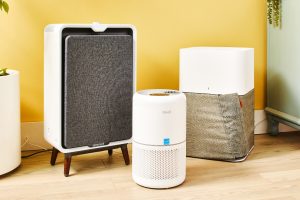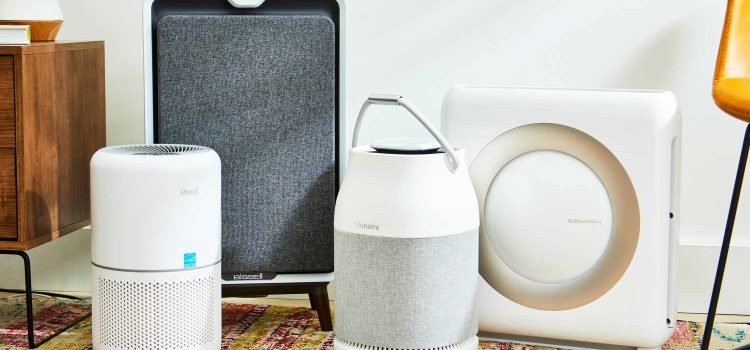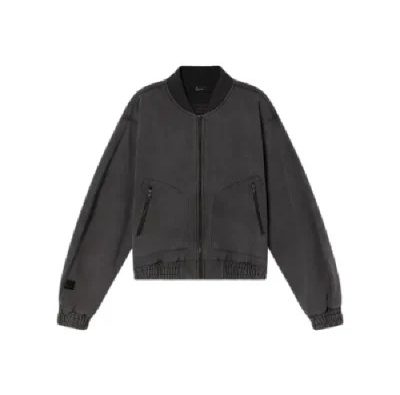
The Best Air Purifiers for Home Use
Allergies can significantly impact our quality of life, causing discomfort and health issues ranging from sneezing and itching to severe respiratory problems. For those suffering from allergies, air purifiers can be a valuable tool in reducing airborne allergens and improving indoor air quality. This article will explore the top air purifiers designed to tackle allergens, offering detailed analysis and comparisons to help you make an informed decision.

Understanding Allergens and Air Purifiers
What Are Allergens?
Allergens are substances that can trigger allergic reactions. Common indoor allergens include pollen, pet dander, mold spores, and dust mites. These particles can be present in the air and settle on surfaces, causing issues for those with sensitivities.
How Air Purifiers Help
Air purifiers work by filtering out airborne particles, reducing the concentration of allergens in the indoor environment. Most effective air purifiers use HEPA (High-Efficiency Particulate Air) filters, which can capture particles as small as 0.3 microns with an efficiency of 99.97%. Additionally, some air purifiers incorporate activated carbon filters to remove odors and volatile organic compounds (VOCs), and UV-C light to kill microorganisms.
HEPA Filter Technology
One of the most significant advancements in air purifier technology is the development and refinement of HEPA (High-Efficiency Particulate Air) filters. These filters have become the gold standard in air purification due to their ability to capture 99.97% of particles as small as 0.3 microns. HEPA filters work by forcing air through a dense filter mat that traps airborne particles, including dust mites, pollen, and pet dander. The evolution of HEPA technology has seen improvements in filter design, increasing their surface area and efficiency while reducing airflow resistance. This has resulted in more powerful and quieter air purifiers that effectively reduce allergens in indoor environments.
Advanced Filtration Technologies
Recent innovations in air purifier technology go beyond traditional HEPA filters, incorporating advanced filtration methods such as activated carbon filters, UV-C light, and PECO (Photo Electrochemical Oxidation). Activated carbon filters enhance air quality by adsorbing odors and volatile organic compounds (VOCs) that HEPA filters cannot capture. UV-C light technology, used in some models, helps to kill bacteria, viruses, and mold spores, adding an extra layer of protection against harmful microorganisms. The latest development in this field is PECO technology, which is employed by advanced models like the Molekule Air Pro. PECO filters use a light-activated process to break down pollutants at a molecular level, including VOCs and even some viruses, offering comprehensive air purification. These advancements represent a significant leap forward in creating cleaner, healthier indoor environments, particularly for individuals with severe allergies and sensitivities.
Top Air Purifiers for Allergies
- Dyson Purifier Cool TP07
Features:
- Filter Type: HEPA and activated carbon
- Coverage Area: Up to 500 sq. ft.
- Special Features: Air Multiplier technology, oscillation, real-time air quality monitoring, and smartphone app control.
Pros:
- Effective in removing allergens and pollutants.
- Sleek design with cooling fan functionality.
- Real-time air quality display.
Cons:
- Higher price point.
- Noisy on higher settings.
- Honeywell HPA300
Features:
- Filter Type: True HEPA
- Coverage Area: Up to 465 sq. ft.
- Special Features: 3 air cleaning levels, turbo clean setting, and easy-to-use controls.
Pros:
- High-performance HEPA filter.
- Affordable price.
- Quiet operation.
Cons:
- Bulky design.
- No additional features like smart technology.
- Blueair Blue Pure 211+
Features:
- Filter Type: HEPA and activated carbon
- Coverage Area: Up to 540 sq. ft.
- Special Features: 3-stage filtration, minimalist design, and energy-efficient.
Pros:
- Excellent allergen removal.
- Sleek design and quiet operation.
- Low energy consumption.
Cons:
- No smart features.
- Replacement filters can be costly.
- Levoit Core 300
Features:
- Filter Type: HEPA and activated carbon
- Coverage Area: Up to 219 sq. ft.
- Special Features: 3 filtration stages, compact design, and affordable price.
Pros:
- Compact and space-saving.
- Affordable with good performance.
- Quiet operation.
Cons:
- Limited coverage area.
- Basic features compared to higher-end models.
- Molekule Air Pro
Features:
- Filter Type: PECO (Photo Electrochemical Oxidation)
- Coverage Area: Up to 600 sq. ft.
- Special Features: Advanced technology for destroying pollutants, including VOCs and viruses.
Pros:
- Advanced filtration technology.
- Effective at breaking down pollutants.
- Stylish design.
Cons:
- Expensive.
- Higher maintenance costs.
Comparative Analysis
To better understand how these air purifiers measure up against each other, the following comparative table highlights key attributes and performance metrics.
| Feature | Dyson Purifier Cool TP07 | Honeywell HPA300 | Blueair Blue Pure 211+ | Levoit Core 300 | Molekule Air Pro |
| Filter Type | HEPA & Activated Carbon | True HEPA | HEPA & Activated Carbon | HEPA & Activated Carbon | PECO |
| Coverage Area | Up to 500 sq. ft. | Up to 465 sq. ft. | Up to 540 sq. ft. | Up to 219 sq. ft. | Up to 600 sq. ft. |
| Special Features | Air Multiplier, Smart Control | Turbo Clean Setting | 3-Stage Filtration | Compact Design | Advanced Filtration |
| Pros | Effective, Stylish | High Performance | Sleek, Quiet | Affordable, Compact | Advanced Technology |
| Cons | Expensive, Noisy | Bulky Design | Costly Filters | Limited Coverage | High Maintenance Cost |
Conclusion
When selecting an air purifier for allergies, it is essential to consider factors such as filter type, coverage area, special features, and overall cost. Each of the top air purifiers listed offers unique advantages tailored to different needs and preferences.
- Dyson Purifier Cool TP07 is ideal for those seeking a stylish, multifunctional unit with real-time air quality monitoring.
- Honeywell HPA300 provides robust allergen removal at an affordable price, suitable for larger rooms.
- Blueair Blue Pure 211+ is a strong performer with a minimalist design and efficient operation.
- Levoit Core 300 offers a compact, budget-friendly option for smaller spaces.
- Molekule Air Pro represents the cutting edge of air purification technology but comes at a higher price point.
Choosing the right air purifier depends on your specific needs, budget, and preferences. By understanding the features and performance of each model, you can make an informed decision to improve your indoor air quality and alleviate allergy symptoms.










